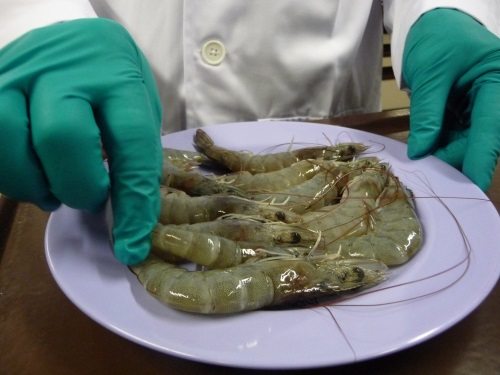More than 70 countries, private companies, international organizations, trade associations, academic institutions, and non-governmental groups met in Singapore on December 11, 2013, for the Global Food Safety Partnership (GFSP) 2nd Annual Conference.
Participants at the event evaluated its first-year achievements and discussed future plans to scale up and shape the world’s response to food safety challenges.
There is an ongoing world food safety problem that threatens every economy and food company, challenging governmental regulatory authorities, sickening millions of people each year, introducing barriers to trade, and hurting corporate bottom lines.
As a result, the international community faces the critical task of strengthening food safety capacity in developing and middle income countries in order to safeguard public health, while promoting food security and economic development.
“Safe food should not be a luxury for so many at our global table,” said JuergenVoegele, World Bank Director for agriculture and environmental services.
“Everyone involved in the global food chain has an obligation to ensure food safety. At the same time, meeting international or industry standards creates both challenges and opportunities for poor farmers and agri-businesses competing in these growing markets.”
“Our partners recognize that no single organization acting alone can have the impact we all want. By building the understanding, knowledge, and motivation to fully address food safety risks, this unique partnership can help to decrease food-borne hazards, reduce poverty, and improve food security,” he said.
The GFSP actions are supported by a World Bank multi-donor trust fund that can accept funding from both public and private contributors.
Its mission is to create a new paradigm of public-private collaboration for food safety capacity building.
It aims to reduce risks to consumers and businesses and increase the benefits to both public health and the economy by strengthening food safety protections and supporting effective and efficient global supply chains.
The GFSP builds on Asia-Pacific Economic Cooperation’s Food Safety Cooperation Forum, which was established to address the challenges of facilitating trade of food and food products and improving public health within the region, and that has already improved the availability, accessibility, and use of food safety best practices and protocols.
Since its launch in December 2012, the GFSP has attracted significant contributions from the governments of Canada, Denmark, the Netherlands and the US, private companies such as Mars Incorporated and Waters Corporation; as well as the World Bank.
“We are off to a great start, and the time is right to pool our resources toward this essential global public good,” said Frederik Vossenaar of the Netherlands, a founding donor.
Financial contributions to the GFSP have funded a range of innovative capacity building activities, including training modules addressing Hazard Analysis and Critical Control Points at food processing industries in China, Vietnam and Malaysia, and Good Aquaculture Practices in Indonesia.
Other activities underway include development of training modules for chemical risk assessment, laboratory capacity, and regulatory systems, and a capacity building needs assessment toolkit that is being piloted in Zambia.
All training materials will be made widely available through an open source knowledge and learning platform that will allow for the scaling up of food safety capacity around the world.
The GFSP has also built an active network of 30 contributing and implementing partners, including governments, private companies, international organizations, trade associations, academic institutions, and non-governmental groups.
“Safety is the number one priority for our industry. When it comes to developing and manufacturing safe products, our industry knows what works,” said Dr. Leon Bruner, chief scientist and VP at the Grocery Manufacturers Association.
“To truly have a prevention based food safety system, we need a paradigm of collaboration whereby suppliers wishing to be a part of global supply chains have the capacity to provide food that meets the expectations of global customers.”
“Food safety and food security are major priorities for governments and food companies in Asia for both the protection of consumers and to advance trade in our region,” said Dr. Bev Postma, executive director of Food Industry Asia.
“The vast majority of food in Asia is produced by small and medium sized family businesses, and the GFSP is the ideal platform to support training and capacity building for manufacturers, suppliers and farmers, and for supporting the public sector that supervises and regulates the global and domestic food industry.”










